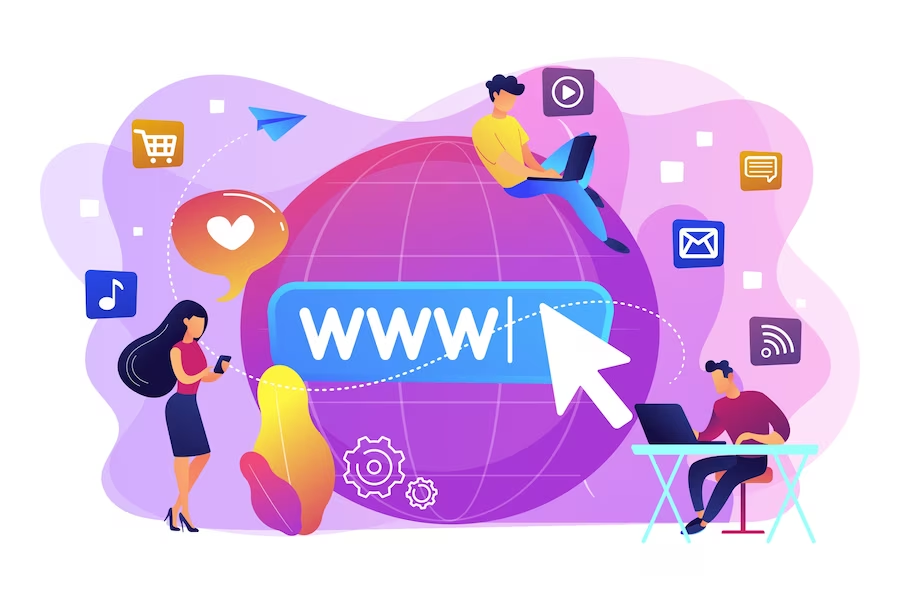Discover Dripping Springs, Texas. Learn about its community, nature, schools, festivals, and more in this simple and helpful relocation guide.
15 November, 2024 | Posted by: About350
Category: Deals & Packages, Internet, Service Providers | No Comments

Are you contemplating a move to the heart of Texas Hill Country? Welcome to Dripping Springs, Texas—aptly nicknamed the "Gateway to the Hill Country." This enchanting locale combines the serenity of rural living with the conveniences of city life, making it an ideal destination for families, retirees, and young professionals alike. This guide will provide you with all the necessary information to navigate your relocation to this vibrant and growing community. Find Internet Deals in My Area | Internet Providers Near Me | KonectEaze
In Dripping Springs, the community spirit is palpable. Known for its Southern hospitality, it's a place where neighbors are more like family. Here, a simple request for a cup of sugar might lead to an impromptu porch chat or a lifelong friendship. The community prides itself on being close-knit and supportive, where everyone makes an effort to know and look out for each other.
While Dripping Springs offers the tranquility of the countryside, it does not lack urban conveniences. The city provides a hybrid lifestyle where you can enjoy peaceful rural living without sacrificing access to modern amenities. From shopping centers to local eateries and artisan shops, Dripping Springs blends these worlds seamlessly.
Nature enthusiasts will find a haven in Dripping Springs, surrounded by natural beauty that beckons outdoor adventures. Iconic spots like Hamilton Pool Preserve offer stunning vistas and a unique swimming experience, while Pedernales Falls State Park provides miles of hiking trails and breathtaking waterfalls. The city is a paradise for those who love hiking, biking, camping, and enjoying nature’s bounty.
For families considering a move, education is often a top priority. Dripping Springs excels in this area with its highly-rated public schools known for their academic excellence and innovative programs. The Dripping Springs Independent School District consistently ranks among the best in the region, providing quality education that prepares students for successful futures. Additionally, several reputable private schools offer alternative educational options.
Dripping Springs is a city that loves to celebrate life with various festivals and community events throughout the year. The annual Founders Day Festival highlights the city's heritage and community spirit, while the Dripping Springs Fair and Rodeo brings thrilling entertainment and traditional rodeo activities. These events not only provide fun and festivities but also strengthen community bonds.
The city has seen significant growth, with its population increasing by over 70% since 2020. This expansion has spurred the development of master-planned neighborhoods featuring resort-style amenities that cater to a high standard of living. The growth also reflects the city’s increasing attractiveness as a place to live, work, and play.
Dripping Springs isn't just a great place to live—it's also a romantic destination, known as the "Wedding Capital of Texas." With over 35 exquisite venues set in picturesque landscapes, the city hosts more than 1,000 weddings each year, adding to its charm and appeal as a place for new beginnings.
As a designated Dark Sky Community, Dripping Springs offers stellar stargazing opportunities, with efforts made to preserve the night sky from light pollution. This commitment ensures that residents and visitors can enjoy the celestial beauty that the Texas Hill Country skies have to offer.
Relocating to Dripping Springs offers more than just a new place to live; it offers a lifestyle enriched by community, nature, and growth. With its excellent schools, vibrant cultural scene, and beautiful surroundings, Dripping Springs provides a high quality of life and stands as a testament to the best that Texas Hill Country has to offer. Whether you’re planning your move or just exploring your options, Dripping Springs welcomes you to discover its charm and make it your new home.
Explore The Future Of Internet Connectivity In Dripping Springs, Texas. Discover How The City Is Expanding Its Digital Infrastructure And Offering A Range Of High-speed Internet Options
21 October, 2024 | Posted by: About350
Category: Business Internet, Internet, Service Providers | No Comments

Dripping Springs, Texas, often celebrated as the "Gateway to the Hill Country," is rapidly becoming known for more than its picturesque landscapes—it's becoming a gateway to the future of digital connectivity. As the city experiences substantial growth, the demand for robust internet services is surging, prompting significant advancements in the region's digital infrastructure. This comprehensive guide explores the current state and exciting future of internet connectivity in Dripping Springs, ensuring both new and long-term residents are well-informed.
As Dripping Springs continues to expand, so does its infrastructure to support high-speed internet, which is becoming as essential as other utilities like water and electricity. The city is committed to enhancing its network capabilities to support the growing needs of its residents and businesses, emphasizing the importance of reliable internet for education, work, and leisure.
Local internet providers play a pivotal role in shaping the digital landscape of Dripping Springs. Notable providers include:
Fiber-optic technology is at the forefront of future-proofing Dripping Springs’ internet infrastructure. With potential speeds reaching up to 1,000 Mbps, fiber internet supports an array of data-heavy activities and multiple users simultaneously without compromising on speed or quality. The city’s ongoing development of fiber infrastructure aims to attract more high-tech businesses and remote workers looking for a reliable connection in a serene setting.
For areas of Dripping Springs where fiber and satellite might not be the best fit, fixed wireless internet presents a viable alternative. This technology offers substantial benefits:
Dripping Springs isn’t just keeping pace with current technology; it’s preparing for future advancements. Plans are underway to expand fiber networks and explore the integration of emerging technologies like 5G, which promise even faster speeds and more reliable connections.
The city encourages community involvement in planning and feedback sessions, allowing residents to voice their needs and preferences regarding internet connectivity. This proactive approach ensures that the digital growth aligns with community interests and demands.
The future of internet connectivity in Dripping Springs looks promising and dynamic. With a commitment to expanding high-speed internet options and embracing cutting-edge technologies, Dripping Springs is positioning itself as a leader in digital innovation in Texas. Whether you're a current resident or planning to move, staying informed about these developments can help you make the most of the burgeoning digital opportunities in the "Gateway to the Hill Country." For detailed information on specific services and the best local deals on internet connectivity, visit Konecteaze or speak directly with an expert to tailor your digital setup to your lifestyle needs.
Internet service providers in Dripping Springs, Texas, Viasat, HughesNet, AT&T, fiber internet, satellite internet, internet speeds
24 October, 2024 | Posted by: About350
Category: Internet, Service Providers | No Comments

Nestled in the serene landscapes of the Texas Hill Country, Dripping Springs is renowned not only for its natural beauty but also for its evolving digital infrastructure. As this charming community continues to grow, so do the demands for robust internet connectivity. This guide delves into the diverse internet service options available in Dripping Springs, Texas, helping residents and new movers make informed decisions based on provider offerings, plan details, speeds, and pricing.
Internet speeds and availability in Dripping Springs can vary significantly depending on the area. Typically, central and more densely populated areas have access to higher speeds and more options, including fiber. More remote areas may need to rely on satellite solutions.
Choosing the right speed depends on your household’s internet usage. Fiber-optic services are best for high-demand environments, supporting streaming, gaming, and large file downloads across multiple devices. Satellite and DSL services are sufficient for lighter use and smaller households.
Dripping Springs offers a variety of internet services that cater to different needs, preferences, and locations within the community. From the lightning-fast capabilities of fiber to the broad reach of satellite, there is a solution for every resident— whether you’re streaming content in high definition, competing in online gaming, or simply catching up on emails. For personalized assistance and the latest deals, consider speaking with an expert or visiting Konecteaze. As Dripping Springs continues to grow and evolve, staying connected with reliable internet service is more important than ever, ensuring that residents can enjoy both the natural beauty and the digital amenities of their city.
Boerne, Texas, is a city that understands the importance of staying connected. With a range of high-speed internet options, including the lightning-fast speeds of fiber, Boerne is an ideal place for those who need reliable internet service.
16 November, 2024 | Posted by: About350
Category: Internet, Service Providers | No Comments

In the scenic Texas Hill Country lies
Boerne, a city that is rapidly becoming synonymous with connectivity.
High-speed internet in Boerne, Texas, is not just a luxury; it's a way of life.
With a range of providers and plans, Boerne is an ideal place for those who
need fast and reliable internet.
A Spectrum of Choices
In Boerne, residents have access to a
variety of internet service providers, including Spectrum, AT&T, HughesNet,
and more. These providers offer different types of internet services, such as
cable, DSL, fiber, and satellite.
Spectrum is known for its cable internet
service, with speeds starting at 100 Mbps. With no data caps and a range of
packages, Spectrum is a popular choice among Boerne residents.
AT&T offers both DSL and fiber internet
services. Their fiber plans boast speeds up to 1,000 Mbps, making it an
excellent option for heavy internet users.
For those in more remote areas, HughesNet
offers satellite internet with speeds starting at 25 Mbps.
The Power of Fiber
Fiber internet is the fastest and most
reliable form of internet connection. With speeds up to 1,000 Mbps, it's ideal
for streaming, gaming, and more. Boerne's infrastructure supports fiber
connectivity, and providers like AT&T offer fiber plans to residents.
Fixed Wireless Options
In addition to traditional internet
services, Boerne also has fixed wireless options. Fixed wireless internet is a
type of high-speed internet that uses radio signals rather than cables. It's a
great alternative for areas where traditional wired services are not available.
Future-Proofing Connectivity
Boerne is not just focused on the present;
it's looking towards the future. The city is continuously working on improving
its digital infrastructure to ensure that residents have access to the latest
and fastest internet technologies.
What is the fastest residential internet speed?
* The fastest residential internet speed is usually offered by fiber internet, with speeds up to 1,000 Mbps or more. Who has the highest Wi-Fi speed?
* Fiber internet providers typically offer the highest Wi-Fi speeds. In Boerne, AT&T is one of the providers offering fiber internet. Does Texas have high-speed internet?
* Yes, Texas has high-speed internet available in many areas, including Boerne. Is Fiber Internet available in Texas?
* Yes, fiber internet is available in many
parts of Texas, including Boerne.
Conclusion
Boerne, Texas, is a city that understands
the importance of staying connected. With a range of high-speed internet
options, including the lightning-fast speeds of fiber, Boerne is an ideal place
for those who need reliable internet service. Check out Konecteaze for the best
deals on high-speed internet in Boerne, Texas, or call 888-376-0753 to speak
with an expert. (https://www.konecteaze.com/providers)
In the charming city of Boerne, Texas, staying connected is a breeze. With various spots offering free public Wi-Fi in Boerne, Texas, residents and visitors can easily access the internet without using their mobile data. Here are the top 5 places to get free public Wi-Fi in Boerne:
23 October, 2024 | Posted by: About350
Category: Internet, Service Providers, Technology | No Comments

Welcome to Boerne, Texas, where the deer and the antelope play on the outskirts of the fiber optic highway. Nestled in the heart of the Texas Hill Country, Boerne offers a charming blend of past and present, making it a unique gem worth exploring. Let's take a whimsical stroll through this quaint town.
Founded in 1849 by German settlers, Boerne boasts a rich history that's as thick as Texas toast. The town was named after Ludwig Börne, a German author and publicist, and yes, the original settlers were just as confused about how to pronounce it as you are.
In a town where horse-drawn carriages once roamed, high-speed internet might seem like an anachronism, yet Boerne is thoroughly connected. The local internet landscape is dominated by providers like AT&T, offering lightning-fast fiber that can stream a rodeo faster than you can say "giddy up".
From its historic walking tours to its high-speed internet, Boerne offers a slice of Hill Country heaven. Whether you're visiting or staying for good, you'll find Boerne is easy to love and hard to leave. And if you do decide to stay, don't worry—the locals just might teach you the correct way to pronounce "Boerne" at the next town festival.